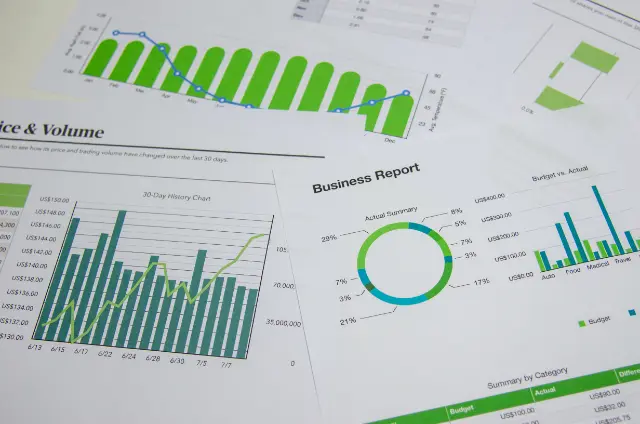Empowering Manufacturing with Intelligent Shipping Label Generation Automation
In the fast-paced world of manufacturing, efficient and accurate shipping processes are crucial for timely delivery and customer satisfaction. Traditional shipping label generation methods are often manual and prone to errors, leading to delays, lost packages, and increased operational costs.
Introducing the Power of Python, AI, and Cloud
Fortunately, advancements in technology have paved the way for Shipping Label Generation Automation, empowering manufacturers to streamline their shipping processes like never before. By leveraging the power of Python, AI, and cloud-based solutions, businesses can automate the generation of shipping labels, ensuring accuracy, efficiency, and cost reduction.
This innovative approach eliminates the need for manual data entry, reducing the risk of errors and saving valuable time. The integration of AI algorithms allows for the automatic extraction of product information, weight, and destination addresses from sales orders, eliminating the need for tedious and error-prone manual processes.
By embracing Shipping Label Generation Automation, manufacturers can transform their shipping operations, enhancing efficiency, reducing costs, and improving customer satisfaction.

Python, AI, and Cloud: The Cornerstone of Shipping Label Generation Automation
Unleashing the Power of Python
Python, a versatile programming language known for its simplicity and readability, serves as the foundation for developing unattended bots for Shipping Label Generation Automation. These automated bots seamlessly integrate with existing systems, extracting data from sales orders and generating shipping labels with precision. By eliminating manual data entry, businesses can significantly reduce errors and save valuable time. Customization Python bots allow for a high degree of customization, enabling businesses to tailor their shipping label generation process to their unique requirements.
Attended Bots for Personalized Automation
Attended bots offer an additional layer of automation that empowers human workers to collaborate with bots, enhancing productivity and accuracy even further. With attended bots handling repetitive tasks such as shipping label generation, employees can focus their efforts on more complex and value-added activities.
Cloud Platforms: Orchestrating Automation with Power and Flexibility
Cloud platforms surpass traditional RPA/workflow tools in terms of features and capabilities. Their robust infrastructure provides a scalable and reliable foundation for Shipping Label Generation Automation, enabling businesses to handle high volumes of orders and complex shipping requirements with ease. Cloud-based automation orchestrators offer a wide range of integrations, allowing businesses to connect their shipping systems with other applications seamlessly.
AI: Enhancing Accuracy and Intelligence
AI plays a pivotal role in enhancing the accuracy and intelligence of Shipping Label Generation Automation. Techniques such as image recognition can automate the extraction of product information from images, eliminating the need for manual data entry. Natural language processing (NLP) enables the automation of address parsing, ensuring accurate and consistent destination addresses on shipping labels. Generative AI can even generate custom shipping labels based on predefined templates, saving businesses time and resources.
By harnessing the combined power of Python, AI, and cloud platforms, businesses can transform Shipping Label Generation Automation into a competitive advantage, driving efficiency, accuracy, and customer satisfaction.

Building the Shipping Label Generation Automation with Python and Cloud
The automation of Shipping Label Generation involves several key subprocesses:
-
Data Extraction: Extracting product information, weight, and destination addresses from sales orders using Python’s powerful data parsing capabilities.
-
Label Generation: Generating shipping labels based on the extracted data using cloud-based label generation services, ensuring high-quality and standardized labels.
-
Label Printing: Sending the generated labels to printers seamlessly, leveraging Python’s integration with printing devices or cloud-based printing services.
-
Tracking and Monitoring: Tracking the status of generated labels, monitoring the printing process, and providing real-time updates to users.
Data Security and Compliance in Manufacturing
Data security and compliance are paramount in the manufacturing industry. Python’s robust security features and adherence to industry standards ensure the protection of sensitive data throughout the Shipping Label Generation Automation process. Cloud platforms provide additional layers of security, encryption, and access controls to safeguard data and maintain compliance.
Advantages of Python over No-Code RPA/Workflow Tools
While no-code RPA/workflow tools offer a low-code/no-code approach, they often lack the flexibility, customization, and scalability required for complex Shipping Label Generation Automation scenarios. Python’s open-source nature, extensive library ecosystem, and ability to integrate with diverse systems make it the ideal choice for building robust and tailored automation solutions.
Algorythum’s Approach: Empowering Clients with Python Expertise
Algorythum takes a unique approach to Shipping Label Generation Automation, leveraging Python’s capabilities to deliver tailored solutions that meet the specific needs of our clients. We understand the limitations of off-the-shelf automation platforms and believe that Python’s versatility and power enable us to build scalable, efficient, and cost-effective automation solutions that drive real business value.

The Future of Shipping Label Generation Automation
The future of Shipping Label Generation Automation holds exciting possibilities, with advancements in technology opening up new avenues for innovation.
Integration with AI and Machine Learning
AI and machine learning algorithms can further enhance the accuracy and efficiency of Shipping Label Generation Automation. For example, AI can be used to automatically classify products based on their weight, dimensions, and other attributes, optimizing the selection of shipping carriers and packaging materials. Machine learning algorithms can analyze historical shipping data to identify patterns and predict future shipping trends, enabling businesses to optimize their inventory and shipping strategies.
Blockchain for Secure and Transparent Shipping
Blockchain technology can revolutionize the shipping industry by providing a secure and transparent platform for tracking and managing shipping data. By leveraging blockchain, businesses can create immutable records of shipping transactions, ensuring the authenticity and integrity of shipping labels. This can streamline the claims process, reduce fraud, and enhance trust among stakeholders.
Augmented Reality for Enhanced Shipping Operations
Augmented reality (AR) can empower warehouse workers with real-time information and guidance during the shipping process. AR headsets can display product information, shipping labels, and other relevant data, enabling workers to pick, pack, and ship orders with greater accuracy and efficiency.
Subscribe to Algorythum for Industry-Specific Automation Insights
Stay ahead of the curve in automation trends by subscribing to Algorythum. Our blog provides valuable insights, case studies, and industry-specific automation solutions.
Contact Us for a Free Feasibility and Cost Estimate
Are you ready to transform your Shipping Label Generation process? Contact the Algorythum team today for a free feasibility assessment and cost estimate. Our experts will work with you to design and implement a customized automation solution that meets your unique business requirements.

Algorythum – Your Partner in Automations and Beyond
At Algorythum, we specialize in crafting custom RPA solutions with Python, specifically tailored to your industry. We break free from the limitations of off-the-shelf tools, offering:
- A team of Automation & DevSecOps Experts: Deeply experienced in building scalable and efficient automation solutions for various businesses in all industries.
- Reduced Automation Maintenance Costs: Our code is clear, maintainable, and minimizes future upkeep expenses (up to 90% reduction compared to platforms).
- Future-Proof Solutions: You own the code, ensuring flexibility and adaptability as your processes and regulations evolve.









